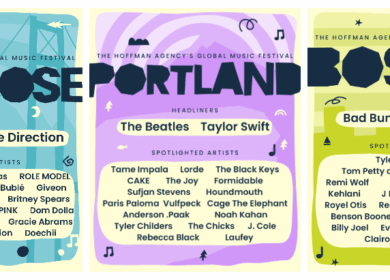
By Chris Owen, Director, Hoffman Europe
We recently had a call with a potential PR intern, as part of a series of chats we’re having for new agency hires for the year ahead.
He was positive, clearly had a flair for writing, had a great balance between ambition and desire to learn his PR chops, and would definitely fit the culture here at The Hoffman Agency.
As we finished up the call, there was the usual “any other questions?” from us, which brought the reply: “is it a paid internship?”
Turns out, a few of the chats he’d been having were for unpaid PR internships.
It’s an old debate
Now, I’m writing this at the tail-end of 2020 — and didn’t realise the discussion about paying interns was still a thing, let alone some PR agencies (he didn’t name them), still expecting what is essentially free labour. It’s just not ethical.
The internship candidate said a couple of PR agencies had sold the idea that they were offering him experience for his CV — which is just bullshit. You’d not get a roofer round to fix your gutters, then say you’re not going to pay them, but will leave a lovely Google review.

Unpaid internships reinforcing diversity problems
Outside of pure exploitation, there are wider issues caused by unpaid PR internships — issues that have become endemic and are taking significant (essential) work to address.
If you can afford to work for free, in London (most likely — although the same rule applies regionally), then you’ve intrinsically got the financial means to live ‘comfortably’ while not being paid. Rent, food, going out a few times a month, a degree of disposable income — you’re probably looking at needing over a grand a month, minimum. This isn’t small change.
This type of financial reserve (especially if you’re looking at a three-month placement) demands a well-off background. Either that or a bank loan, which is essentially borrowing against future earnings and doesn’t help matters either.
If only those with support from the ‘Bank of Mum and Dad’ can get their foot in the door with a PR agency, it merely reinforces the concentrated white middle-class demographic of the industry. There are a lot of organisations doing great work in addressing this imbalance, but their cause isn’t helped by agencies exploiting PR interns who can afford to live, while working for free.
The need for diverse thinkers
The other resulting issue that this brings is a narrow diversity of culture, behaviour and thinking. PR isn’t going to be able to reflect the society within which it works, if the majority of entrants into the industry come from homes with an Aga.
In 2021, of all years, asking PR interns to work for free – perhaps knowing the supply-and-demand model is skewed in agencies’ favour (as Mark has written previously – in 2017!), given the groundswell of talent – is perhaps even more unprofessional and unethical as ever.
There have been huge strides made in recent years, with industry bodies being a big part of this, but the fact that a PR intern still double-checks shows that there’s still exploitation under the radar.
It’s usually accepted that no-one likes naming-and-shaming, but every now and then maybe there’s exceptions to the rule.

